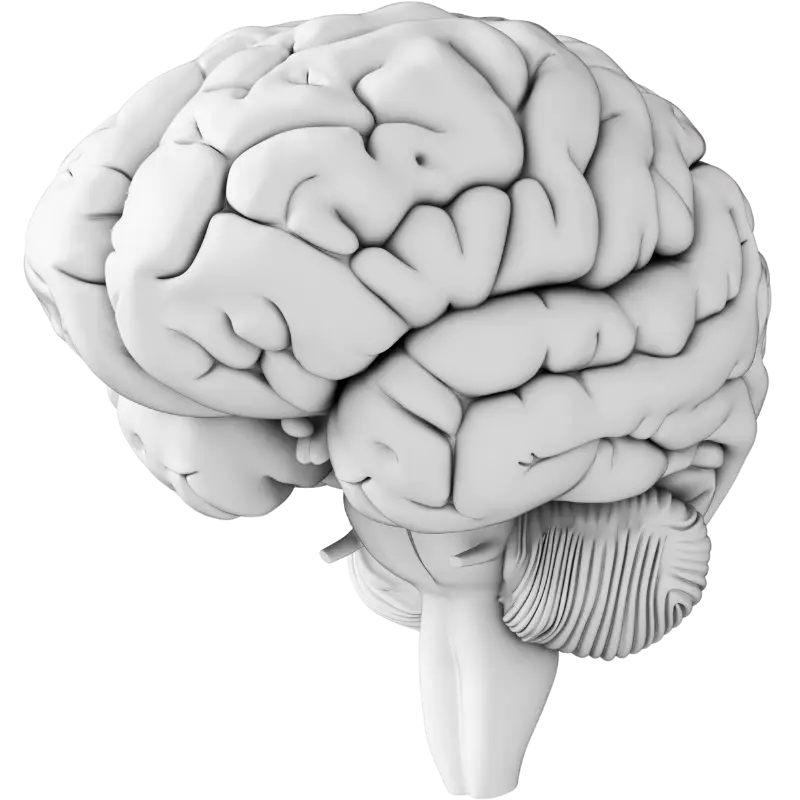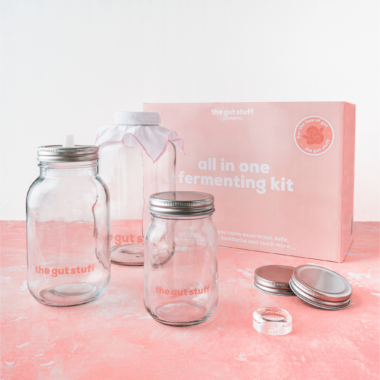mental health and stress
The relationship between the gut and the brain can be tricky to get your head around (no pun intended).for once!

our top takeaways
simple swap
Swap Instagram scrolling for 3 minutes of mindfulness
myth bust
Mental health has nothing to do with my gut. False. Quite the opposite in fact. Stress, anxiety and depression can have a direct effect on your microbiome and how well your gut works and vice versa!
Heard about the gut brain axis (or the big GBA as we like to call it)? The GBA’S role is to keep tabs on how the gut is functioning as well as linking your cognitive and emotional parts of your brain with your gut. A great example of this in practice is feeling butterflies in your gut if you are nervous/anxious.
Your gut and brain chat to each other like pals and just like us, use different ways of communicating.
There’s a lot of cross talk going on. What goes on in your gut is going to have an affect on your brain and vice versa. Lack of microbial diversity and even specific species have been linked with poor mental health.
Science now shows that Learning how to manage stress or even reduce it where you can (e.g. HIIT classes are great but sometimes swapping for a yoga class might help your body relax in times of high stress) and put in place some proper sleep hygiene will go a long way in supporting your mental health and in turn, your gut.
de-stress
Stress doesn’t just mean mental stress. Despite us humans being intelligent creatures, our bodies react to all forms of stress in the same way. Stressors can be physical (high intensity exercise, injury, illness, lack of sleep) or mental (perceived or actual).
In response to stress, your body produces the hormone cortisol – when this happens, you are in you fight, flight or freeze mode (or sympathetic nervous system).
Think of cortisol like an air traffic controller, it effectively diverts, slows or stops metaphorical planes and affects how the airport is running.
Of relevance to your gut, cortisol:
- diverts blood away from the gut to your muscles (to fight or run from your stressor)⠀
- slows the production of saliva, meaning the enzymes that break down food are reduced (impairing digestion)⠀
- decreases prostaglandins, which protect your stomach from acid (some experience a more sensitive tummy) ⠀
- slows digestion or causes sudden evacuation – hello diarrhoea, which might mean you aren’t absorbing nutrients as well⠀
- down-regulates your immune system (70% is found in your gut)⠀
- can cause the stomach and oesophagus to spasm
All of this is fine in the short term, but where stress is prolonged and food isn’t digested properly, it can really play havoc on the delicate ecosystem found in your gut.
To get out of fight, flight or freeze mode, you need to work on activating rest and digest mode (parasympathetic nervous system) – do what helps you relax, whether its yoga, having a dance or chatting to a friend.
disclaimer: The information on this website is provided as an information resource only and is not to be used or relied on for any diagnostic, treatment or medical purpose. All health issues should be discussed with your GP and/or other qualified medical professional.




